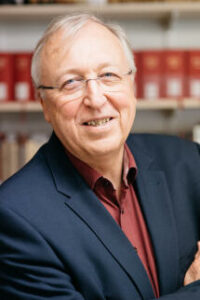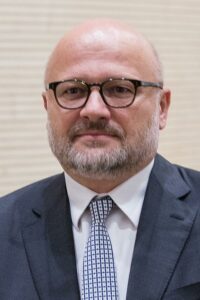“The Concept of Religion”, ESPR and conference President: Ingolf U. Dalferth (Zürich)
Za igranje v Megapari casinu v Sloveniji obiščite Megapari casino na spletnem mestu CasinoSlovenija10.

Welcome to the site of the European Society for Philosophy.

On the following pages you will find information about the history, organisation and present activities of the European Society for Philosophy of Religion. If you work in the field of philosophy of religion in Europe, we invite you to participate in our activities – especially in our biannual European Conferences on Philosophy of Religion. If you plan and organise a conference in philosophy of religion, we would be happy to advertise information about such a conference on our homepage.
Upcoming Conferences

The ESPR is represented by the following members:

Prof. Dr. Ulf Zackariasson

Professor of Philosophy of Religion, Uppsala University, Sweden
The history of the European Society for Philosophy.

At the 9th conference in Aarhus, it was decided to have official statutes drawn up for the Society and to have the Society officially registered as such. The draft statutes were approved by the general meeting of the Society in Swansea in September 1994 and officially registered before a notary on the 24th of June 1996 by professors Vincent Brümmer and Henk Vroom, who at the time were president and treasurer of the Society. Included below is a copy of the official statutes of the Society as these are entered in the Register of Societies at the Utrecht Chamber of Commerce [Kamer van Koophandel en Fabrieken], as well as an English translation for use in the Society. In 2020 the biannual conference was cancelled and postponed to 2022 because of the global SARS-CoV-2 pandemic.
If you click on the respective conference in the following timeline, you will see the theme of the conference and the organisers.
“God, Time and Change”, ESPR President: Victoria Harrison (Macao), Conference commitee: Victoria Harrison (Macao) and Mark Wynn (Oxford)
“Philosophy of Religion in a Pluralistic World”, ESPR President: Janusz Salamon (Prague), Conference committee: Janusz Salamon (Prague)
“Evil”, ESPR President: Ulf Zachariasson (Uppsala), Conference commitee: Ulf Zachariasson (Uppsala) and Jonna Bornemark (Södertörn)
“Transforming Religion”, ESPR President: Hans-Peter Grosshans (Münster), Conference commitee: Hans-Peter Grosshans (Münster) and Klaus Müller (Münster)
“Embodied Religion”, ESPR President: Peter Jonkers (Tilburg), Conference commitee: Peter Jonkers (Tilburg) and Marcel Sarot (Utrecht)
“Religion in the Public Sphere”, ESPR and conference President: Roger Trigg (Oxford)
“Sacrifice”, ESPR President: Marius Timmann Mjaaland (Oslo), Conference commitee: Marius Timmann Mjaaland (Oslo) and Jan-Olav Henriksen (Oslo)
“Traditional Theism and its modern Alternatives”, ESPR and conference President: Svend Andersen (Aarhus)
“Divine Agency”, ESPR and conference President: Ingolf Dalferth (Tübingen)
Mailing-List
If you want to be on the Mailing-list of the European Society for the Philosophy of Religion you can register with this formula, which will be send to the secretary of Prof. Dr. Hans-Peter Grosshans, who is one of the Vice-Presidents of ESPR.
Related links

The European Society for Philosophy has set the following statutes

1. The name of the society is the European Society for Philosophy of Religion.
2. The Society is registered in Utrecht, The Netherlands.
3. The Society is founded for an unlimited period of time.
1. The aim of the society is to promote the study of the Philosophy of Religion in Europe and to undertake actions which directly or indirectly further or have a bearing on this aim.
2. The Society will try to achieve this aim by means of biennial European conferences for scholars engaged in teaching and/or research in the philosophy of religion, and by all other legal means which are considered necessary or useful in order to realize its stated aim.
3. The location of these conferences will rotate between various European geographical Areas including at least: (a) the United Kingdom and the Republic of Ireland, (b) the Benelux, (c) German speaking countries, (d) Nordic and Baltic region, (e) Central and Eastern Europe, and (f) Mediterranean region.
The Society year consists of two consecutive calender years. The first Society year started on the first of September nineteen hundred and seventy six and ended on the thirty first of December nineteen hundred and seventy eight.
1. Membership of the Society is open to scholars engaged in teaching and/or research in the Philosophy of Religion. Members are appointed by the Board, to whom applications for membership should be submitted.
2. The Board keeps a register of the names and addresses of all members. Members are required to inform their representative on the Board directly of any change in address.
Members are required to pay a biennial membership fee as determined by the General Meeting of the Society.
- Membership is terminated by:
1. The death of the member;
2. Cancelation of membership by the member;
3. Cancelation of membership by the society;
4. Expulsion from the Society.
5. Nonpayment of membership fee within six months after the end of the society year. - Cancelation of membership and expulsion from the Society occur in accordance with Dutch law.
The Board of the Society consist of at least four and not more than six members elected by the General Meeting of the Society from among its members. Each of the geographical areas mentioned in article 2.3 should be represented by one member in the Board. The member in whose area the next biennial conference is to be held, will act as President of the Society.
- Board members are elected for a period of four years, except when the General Meeting of the Society should decide otherwise. At the end of this period, Board members are eligible for reelection. In accordance with Article 7, the president is appointed for the period between two conferences.
- Membership of the Board is terminated when a Board member:
- ends his/her membership of the Society
- resigns from the Board in writing
- loses his/her capacity to function as Board member.
- If a vacancy should occur in the Board during the period between two General Meetings of the Society, the Board will be entitled to appoint a temporary representative for the geographical area not represented on the Board. This representative will serve on the Board until the next General Meeting of the Society, when the vacancy will be filled.
- Any Board member can be dismissed at any time by the General Meeting of the Society.
1. The function of president rotates among Board members in the sense that the Board member in whose area the next biennial conference is to be held, functions as president. The remaining board members function as vice presidents.
2. Decisions can only be taken in the Board when at least half the members are present. Decisions can also be taken without a meeting, provided that all Board members express their views on the relevant issue in writing.
3. All decisions in the Board are taken by majority vote.
The management of the Society is vested in the Board. The Board is entitled to delegate any of its tasks provided these are clearly circumscribed. Persons to whom such tasks are delegated, act under the responsibility of the Board.
The Society is legally represented by the Board. It can also be represented by two Board members acting jointly.
1. The Board shall conduct the financial administration of the Society in such a way that the rights and duties of the Society can be made known at all times.
2. At the General Meeting of the Society the Board shall report on the activities of the Society and submit a financial report for the period since the previous General Meeting
1. A General Meeting of the Society will be held during every biennial conference of the Society referred to in Article 16 below.
2. Further General Meetings of the Society may be convened whenever the Board deems this necessary.
1. The General Meeting of the Society is convened by the Board. At least fourteen days before the General Meeting all members are invited to attend. Convocations are sent in writing to the members’ addresses as these occur in the register kept by the Board.
2. Convocations for the General Meeting are accompanied by a written agenda.
3. All members of the Society are admitted to the General Meeting. The Board may also invite others to attend the General Meeting.
1. All members are entitled to vote at the General Meeting of the Society Each member can cast one vote.
2. Decisions are taken by majority of the valid votes cast.
1. The Board shall convene a biennial conference of the Society, by rotation in the area from which the current president comes.
2. The president shall be responsible for organizing the conference. In this heshe shall be assisted by the other members of the Board in working out the programme and inviting the speakers. Each Board member shall be responsible for the contacts with the members from the area which heshe represents.
3. In organizing the conference, the president shall be assisted by a secretary and a treasurer from the area where the conference is to be held. Together they form the conference committee. The secretary and treasurer are nominated by the president and appointed by the Board.
4. The Board can invite scholars from other countries who are not members of the Society to take part in the conference.
1. Changes in the statutes of the Society can only be made by decision of the General Meeting of the Society.
2. The written text of proposed changes are to be sent in advance to the members with the convocation for the General Meeting.
3. A decision to change the statutes can only be taken by a twothirds majority of the valid votes cast at the General Meeting of the Society.
Statutory changes take effect after these have been legally registered. Any Board member is empowered to sign the relevant registration documents.
1. The Society can be dissolved by a decision of the General Meeting taken in accordance with Article 17 above.
2. The Board members function as liquidators of the Society. Wherever applicable, the statutes remain valid during the period of liquidation.
3. In the event of dissolution of the Society, any accounts remaining after the satisfaction of any proper debts shall be applied to charitable purposes of a like nature of those of the Society, such at the discretion of the General Meeting.
4. After dissolution the accounts of the Society shall be held in safe keeping for a period of ten years by some person nominated by the General Meeting. (These statutes were approved by the General Meeting of the Society in Swansea in September 1994. A revision of these statutes was approved by the General Meeting of the Society in Muenster in August 2014.)





